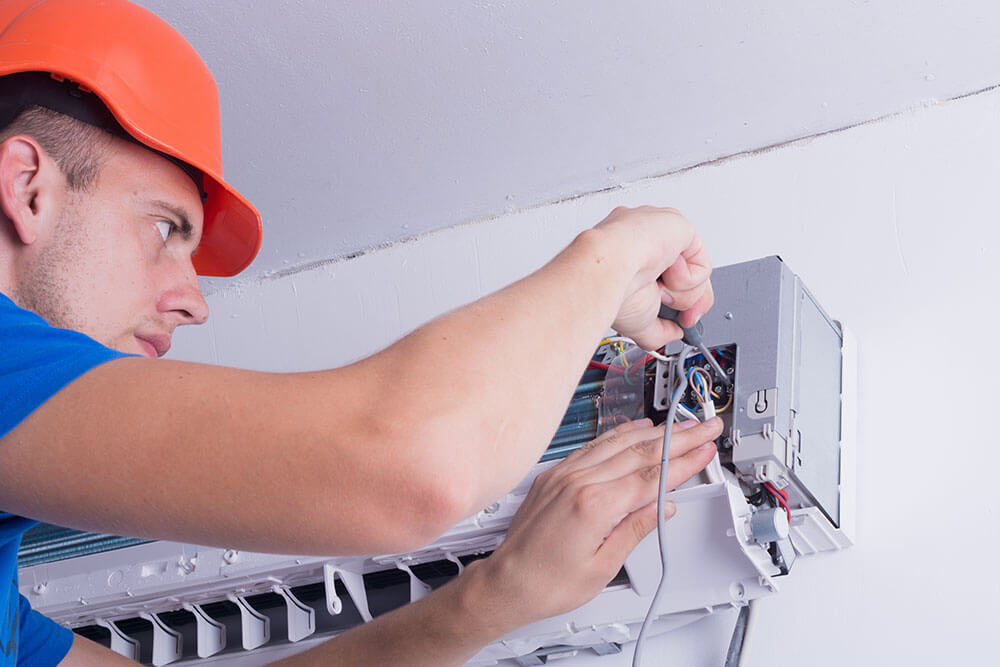Picking the right HVAC contractor is a crucial step in guaranteeing your home's heating and cooling systems operate effectively and successfully. Whether putting in a brand new system, upgrading an outdated one, or just maintaining your current setup, the contractor you choose can create all the difference. With so many alternatives available, it can be challenging to identify a capable professional who fulfills your specific needs.
In this manual, we will guide you through key points to aid you choose the best HVAC contractor for your home. From comprehending what HVAC systems are to recognizing the significance of indoor air quality, you will gain knowledge into how to take informed decisions. Furthermore, we will investigate common HVAC problems and their solutions, seasonal maintenance advice, and how to enhance your system's efficiency, all of which are vital elements to take into account when reviewing potential contractors.
Comprehending Heating, Ventilation, and Air Conditioning
HVAC stands for heating, ventilation, and air conditioning. It denotes the technology used to regulate the indoor environment of home and business spaces. An Heating, Ventilation, and Air Conditioning setup is intended to provide a pleasant atmosphere by regulating heat, moisture levels, and indoor air quality, making it essential for preserving a wholesome and comfortable atmosphere. Understanding the components of HVAC systems helps homeowners and companies make educated determinations about setup, maintenance, and enhancements.
The primary components of an HVAC system are comprised of a boiler or heat source for temperature control, an AC unit for temperature reduction, and ventilation systems for airflow and air cleaning. These elements collaborate to ensure that the atmosphere in a building is satisfactory, properly circulated, and devoid of contaminants. In addition to climatic control, HVAC units can also control humidity levels and filter out dust, pollen, and other contaminants to boost air quality indoors.
Routine maintenance is essential to the effectiveness and durability of an HVAC unit. It entails regular evaluations, servicing, and prompt restorations to prevent typical problems such as breakdowns or performance issues. Property owners and commercial property owners should be diligent in their heating, ventilation, and air conditioning maintenance to not just ensure pleasure but also to decrease expenses and prolong the term of their setups. Knowing how HVAC operates is the first move in recognizing when it demands attention and how to choose the best professional for the job.
Typical HVAC Problems and Solutions
A common issue encountered by homeowners is insufficient heating or cooling. This can stem from a variety of factors, including clogged air filters, duct leaks, or improper thermostat settings. To address this issue, regularly monitor and update air filters every 1-3 months and ensure that vents are not blocked. If the problem persists, it may be necessary to examine the ductwork for leaks or have a technician examine the effectiveness of your HVAC system.
Another common issue is strange noises coming from the HVAC unit. These sounds can indicate a number of problems, from loose components to more serious mechanical failures. Pay close attention to any clattering, rattling, or high-pitched whistling noises. If you hear these sounds, it is wise to turn off the system and speak to a licensed HVAC contractor to correctly diagnose and fix the issue before it results in more major damage.
Finally, poor indoor air quality can greatly affect your comfort and health. Symptoms like allergies, respiratory issues, or stale air may indicate that your HVAC system needs maintenance. To improve air quality, consider upgrading to high-efficiency air filters, adding air purifiers, or ensuring that your system is properly cared for with regular cleanings. Improving ventilation and humidity control can also result in a healthier indoor environment.
Choosing the Best HVAC System
Selecting a appropriate HVAC solution that fits the house can be essential to ensuring the comfort while ensuring energy efficiency. Begin by analyzing your dimensions for the space, because a correct heating as well as cooling system should match your measurements in the house. An small system will struggle to maintain satisfactory climate, and an excessive system may result in rapid cycling, greater wear and tear, along with elevated energy bills. Consulting with professional for calculate the ideal size using a load assessment can assist your decision make an educated decision.
Next, consider the varied types of HVAC solutions that are available. Options include central air coolers, heat transfer systems, ductless mini-split systems, along with geothermal heating as well as cooling. Every option has its pros as well as limitations depending on the house's layout, climate, and energy efficiency objectives. Investigating find out this here can assist homeowners comprehend which system fits their lifestyle and budget while providing efficient heating & cooling.
Ultimately, consider on energy efficiency ratings when choosing your HVAC system. Search for units with high Seasonal Energy Effectiveness Ratio (SEER) ratings in the case of air conditioners and Heating Seasonal Performance Factor (HSPF) ratings for heat transfer systems. Energy-efficient models could require a higher upfront price yet can lead to significant savings on the energy bills over the years. Integrating energy-efficient machines with smart thermostat technology can increase your HVAC system's performance and comfort levels throughout seasons.

